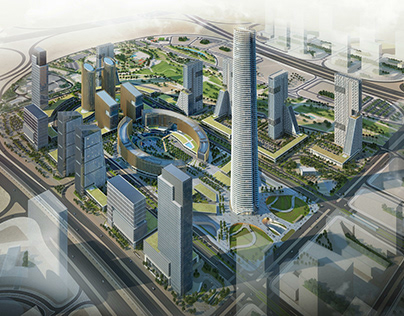In recent years, Ghana's mining industry has undergone a remarkable transformation, propelled by the twin forces of digitalization and an increasing focus on Environmental, Social, and Governance (ESG) principles. As one of the leading gold producers in Africa, Ghana's mining sector stands at the forefront of innovation and sustainability, embracing technological advancements while prioritizing responsible practices.
Digitalization Driving Efficiency
The integration of digital technologies has revolutionized various aspects of Ghana's mining operations, enhancing efficiency, productivity, and safety. From exploration to production and logistics, mining companies are leveraging advanced tools such as drones, 3D mapping, and artificial intelligence to optimize processes and streamline operations.
One notable advancement is the use of data analytics and predictive modeling to improve decision-making and resource allocation. By harnessing big data, mining companies can better understand geological formations, identify potential reserves, and optimize extraction methods, leading to higher yields and reduced operational costs.
Furthermore, digitalization has revolutionized safety protocols within the industry. Remote monitoring systems, wearable devices, and real-time data analytics enable companies to proactively identify hazards, mitigate risks, and ensure the well-being of their workforce. This emphasis on safety not only safeguards employees but also enhances operational efficiency and reputation.
ESG Imperatives Driving Change
In parallel with the digital transformation, there is a growing recognition within Ghana's mining sector of the importance of Environmental, Social, and Governance (ESG) principles. With increased scrutiny from stakeholders, including investors, communities, and regulatory bodies, mining companies are under pressure to operate sustainably and responsibly.
Environmental stewardship has become a focal point, with companies implementing measures to minimize their ecological footprint. This includes adopting cleaner and more efficient technologies, implementing reclamation and rehabilitation programs, and reducing water and energy consumption. Additionally, there is a concerted effort to mitigate the impact of mining activities on biodiversity and ecosystems, promoting conservation and biodiversity management initiatives.
Social responsibility is another cornerstone of the industry's evolution. Mining companies are actively engaging with local communities, fostering dialogue, and investing in social development projects that create lasting benefits. This includes initiatives focused on education, healthcare, infrastructure development, and capacity-building, aimed at empowering local residents and fostering sustainable socio-economic growth.
Governance practices have also come under scrutiny, with an emphasis on transparency, accountability, and ethical conduct. Companies are increasingly adopting robust governance frameworks, adhering to international standards, and enhancing transparency in their operations, including revenue management and stakeholder engagement.
Notable Projects in Ghana
1. Ahafo Expansion Project: Newmont Corporation's Ahafo mine, located in the Ashanti Region, is undergoing an expansion project to increase production capacity and extend mine life. The project includes the development of additional pits and infrastructure to access deeper ore reserves.
2. Obuasi Redevelopment Project: AngloGold Ashanti's Obuasi mine, one of the oldest gold mines in Ghana, is undergoing a major redevelopment aimed at restoring production and extending the mine's life span. The project involves the rehabilitation of underground infrastructure and the implementation of modern mining techniques.
3. Asanko Gold Mine: Asanko Gold Mine, located in the Asankrangwa Belt in the Western Region, is a joint venture between Asanko Gold and Gold Fields. The mine has been expanding its operations and investing in sustainable development initiatives to support local communities.
4. Prestea Underground Mine: Golden Star Resources' Prestea Underground mine, located in the Western Region, is undergoing development to access deeper ore reserves and extend mine life. The project includes the construction of new underground infrastructure and the implementation of advanced mining methods.
Looking Ahead
As Ghana's mining industry continues to evolve, the convergence of digitalization and ESG principles will shape its trajectory. Embracing innovation while upholding sustainability will be crucial for long-term success and competitiveness. Collaboration between industry stakeholders, government entities, and civil society will be essential in driving positive change and unlocking the sector's full potential.
In conclusion, Ghana's mining industry stands at a pivotal moment in its history, poised for growth and transformation. By embracing digitalization and prioritizing ESG principles, mining companies can not only enhance their operational efficiency and profitability but also contribute to the sustainable development of the nation and its people.












